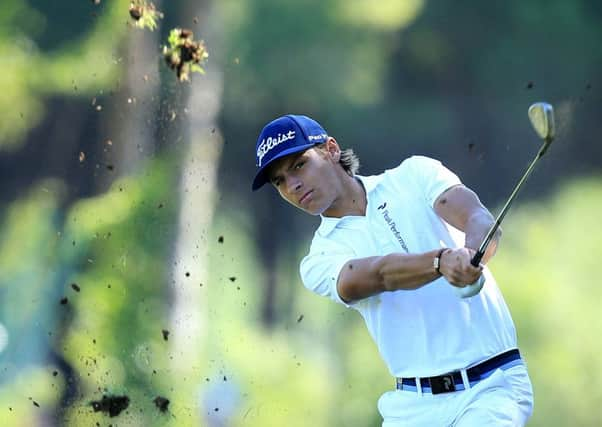Martin Dempster: Golfers need to quicken the pace


GOLF is slow and boring. Not exactly an earth-shattering description of the Royal & Ancient game, I know, but who actually said it was certainly interesting and his words should be repeated to every single European Tour and Challenge Tour player at the start of the 2016 campaign.
Mohammed Mahfoudh Al Ardhi, chairman of the National Bank of Oman, was paying a visit to the media centre during the Challenge Tour’s Grand Final in Muscat, an event sponsored by his company to the tune of £265,000. That may be a drop in the ocean compared to the £5.3 million up for grabs in the European Tour’s season-ending equivalent, the DP World Tour Championship in Dubai this week, but it is a significant sum, nonetheless, in the coffers.
Advertisement
Hide AdAdvertisement
Hide AdIn fairness, the head of the NBO was actually describing golf on television to his audience, an Omani government delegation that had a group of golfing scribes from all corners of Europe watching our Ps and Qs. He was trying to explain how social media was now being used in a widespread manner to try to generate a bit more excitement around the sport while, at the same time, promote events like the one in the Middle East getting worldwide coverage.
A fortnight on from hearing those five words, however, I can’t get them out of my head, mainly because I am struggling to disagree with that description at a time when the sport is being strangled by a growing band of slowcoaches.
Quite frankly, professional golf has become painful to watch, either in the flesh or on a screen, and the biggest problem, it seems, is the time some players now take with pre-shot routines.
Just ask Paul Lawrie, who went on a busman’s holiday to Spain last week to watch his oldest son, Craig, play in the second stage of the European Tour’s Qualifying School and was horrified by what he witnessed.
“Can’t believe some of the pre-shot routines I’m watching,” wrote the 1999 Open champion on Twitter, where he also described the time some players were taking to line up putts as “incredible”.
David Drysdale, another seasoned Scottish campaigner, told a similar story after being paired with Swede Joakim Lagergren in the opening two rounds of the recent Turkish Airlines Open.
The longest hitter in the group, Lagergren was last to play into almost every green, yet, according to Drysdale, he was never close to being ready when it was his turn, and that is simply unacceptable.
The problem, of course, is that the players themselves are unwilling to accept the damage they are doing to the sport, with way too many of them having become programmed like robots.
Advertisement
Hide AdAdvertisement
Hide Ad“It’s the players themselves that need to sort it,” acknowledged Lawrie, responding to a plea on social media at the weekend for the tournament committee, which the Aberdonian has just re-joined, to take action.
Their coaches, too, need to start taking a look at the likes of Andy Sullivan and Matt Fitzpatrick, two of European golf’s top talents but also players who get on with it without any unnecessary faffing around.
On rules duty at the Challenge Tour event in Oman was Clive Brown, who led Great Britain & Ireland to victory in the 1995 Walker Cup at Royal Porthcawl.
He’s set to take over as the R&A’s championship committee chairman later this year and here’s hoping that the affable Welshman follows up the efforts started by Jim McArthur to ensure the game’s governing body is leading the way in trying to educate future generations that the current way of things simply can’t be tolerated.
If it doesn’t change, then companies like the National Bank of Oman won’t be long-term sponsors because no-one, in truth, likes a sport that is “slow and boring”.